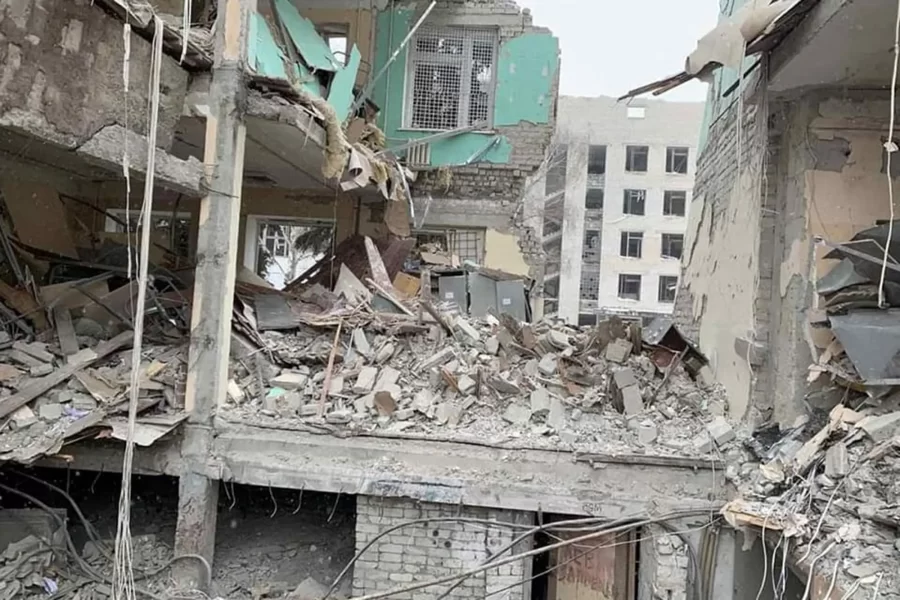Attacks on Hospitals and Health Care Workers in Ukraine
What used to be a psychiatric hospital in the city of Oskil.
April 12, 2022
Medical personnel are becoming casualties as hospitals and clinics in Ukraine continue to be targeted by the Russian military. The World Health Organization (WHO) verified 72 attacks on medical establishments since the war started, the attacks have resulted in 71 deaths and 37 injuries.
Conventional bombs, which use chemical energy to detonate, are being used for these attacks on health centers. However, the Russian military is using misinformation and fabricated stories to deny blame for their actions. Many civilians flee as far as they can go while fear is intensified by attacks on the health care centers. Weaponizing refugees is believed to be the tactic and cause for the Russian military’s actions. As civilians flee, a strain is put on the neighboring nations that they flee to. Accepting refugees means thousands more to feed and shelter. If the neighboring nations attempt to lower the number of refugees they receive, then lives are put in danger and the receiving nation is put at fault.
In a tweet, the agency voiced, “WHO strongly condemns these attacks. Attacks on health care, e.g., patients, facilities, transport, personnel, supplies & warehouses – violate international law & endanger lives.”
Head and representative of the WHO in Ukraine, Dr. Jarno Habicht, expressed that health facilities should be secure places for the sake of health care workers and patients. “Many doctors in the hospitals are also under attack. And it’s not only hospitals. It could be hospitals. It could be primary care center. We have seen attacks to the ambulances,” says Dr. Habicht, “You lose hope, because many people go to the hospital because they want to get the care. And when hospitals are attacked, you don’t have those places where you can actually get healed and be treated.”
In Ukraine, medical supplies must be imported. In an abandoned factory, the International Medical Corps (IMC) gives out such supplies. Working with the IMC is Dr. John Roberts, who explains that boxes containing an interagency health kit (IHK), are being distributed. Full IHKs can individually treat 10,000 people for three months.
Dr. Roberts states, “But when you don’t have the health care system there, everything else that’s not normally a problem all of a sudden becomes a problem. So, for instance something as simple as blood pressure medication, or medication for heart failure, or diabetes, getting your insulin, that goes away.” Due to the IMCs work, “We have brought in tons, and tons, and tons of medical supplies, surgical equipment, medications, bandages, everything that you would need to not only do primary health care, but also to do surgery, to birth babies, to take care of pregnant women.”
Medical supplies are also being imported from many countries that are part of the United Nations by the WHO. Some of the first to take action by sending medical supplies and more were Estonia, Lativa, and Poland.


